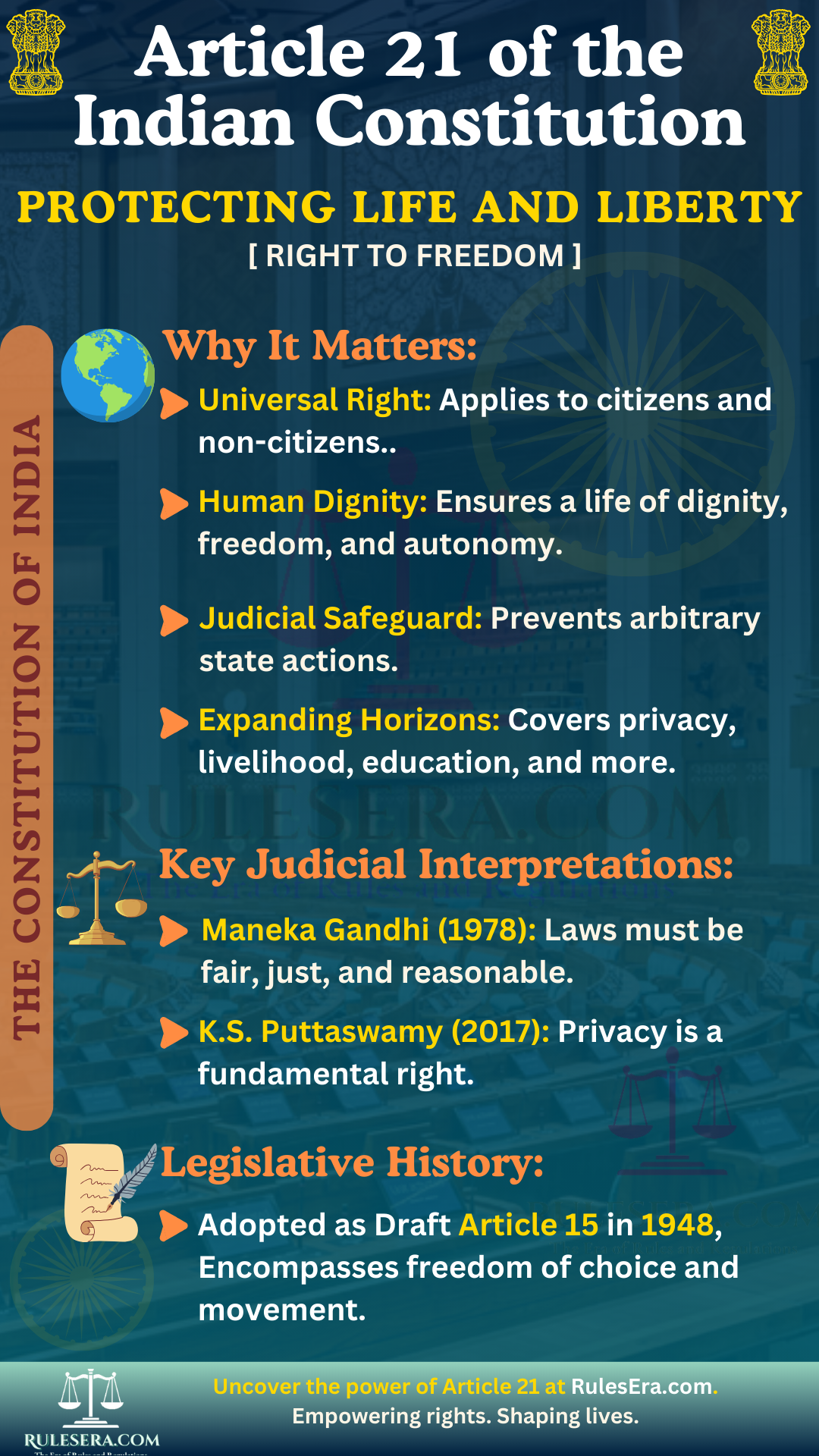Article 21: Protection of Life and Personal Liberty

No person shall be deprived of his life or personal liberty except according to procedure established by law.
Explanation
Article 21 serves as a cornerstone for civil liberties in India. It safeguards the right to life and personal liberty, ensuring that no individual can be deprived of these rights without due process of law. Its scope has evolved through numerous landmark judgments, broadening the interpretation of “life” and “liberty” to encompass a range of fundamental human rights.
Key Aspects of Article 21
- Right to Life: Includes a dignified existence and extends beyond mere survival to encompass a life of dignity and quality.
- Personal Liberty: Encompasses freedom from arbitrary detention and various freedoms essential for personal autonomy.
Real-Life Applications
The landmark ruling in K.S. Puttaswamy v. Union of India (2017) established the right to privacy under Article 21, significantly expanding its protective scope to include the dignity and autonomy of individuals.
Frequently Asked Questions (FAQs):
Under Article 21, “life” encompasses not only physical existence but also a life of dignity, autonomy, and meaningful freedom.
Yes, the right to privacy was recognized as part of Article 21 by the Supreme Court in K.S. Puttaswamy v. Union of India (2017).
Yes, Article 21’s protection of life and personal liberty extends to both citizens and non-citizens.